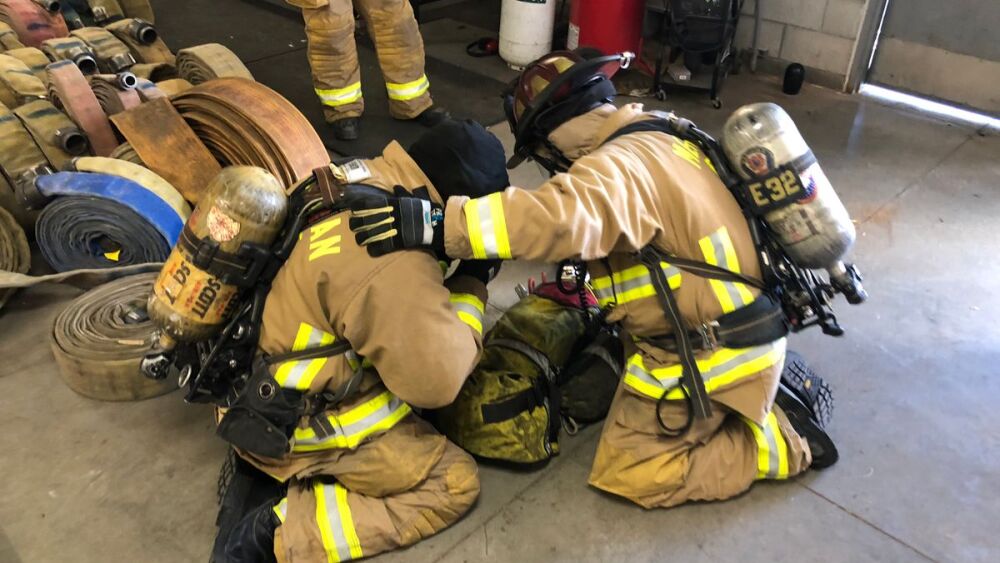Throughout our career, we will experience a handful of sentinel moments that signal a change in direction, either for us personally or our organization. We are experiencing one of those moments right now with the impact of cancer among our ranks. While we have long considered cardiovascular-related incidents to be the number one killer of firefighters, we are now finding that the numbers dying from occupational cancers may be much higher. Now we need the data to support our cancer prevention and awareness efforts.
U.S. Fire Administrator Dr. Lori Moore-Merrell called for the establishment of a single firefighter cancer registry. Many of our partner organizations have been working behind the scenes to answer this call, specifically to establish a registry of firefighters, designed to catalog what we do and how that affects us with respect to cancers. While it may seem simple to establish a list, but when you consider the volume of membership, the number and type of exposures our firefighters face, and the many differing legal references surrounding the issue, the true scope of this project comes into focus.
And now, after significant time, energy and expertise being dedicated to this project, the National Firefighter Registry (NFR) is finally here for all firefighters. Launched by the National Institute for Occupational Safety & Health (NIOSH), the registry is the largest existing effort to understand and reduce the risk of cancer among firefighters.
The NFR is intended for ALL firefighters past and present, paid OR volunteer, whether having been diagnosed with cancer or not. Every single one of us should complete the survey to populate the registry. Firefighters are asked for general dates of service, with specific firefighting agencies/departments across the United States. There are general identity and health questions, as well as questions about the approximate number of exposures to various general potentially carcinogenic events (e.g., structure, wildland and vehicle fires, hazmat incidents, aircraft/rail incidents).
Why you should join the National Firefighter Registry
There are so many things we know we need to be doing every day to make a difference. We could discuss many of the complex and sometimes expensive things we deal with – purchasing apparatus, wearing PPE properly (well, this one is simple), deploying rapid intervention teams, updating training and response standards, strengthening automatic mutual-aid agreements and community risk reduction efforts, plus any number of other things we “coulda-shoulda” been doing, all day, every day. The good news: Joining the National Firefighter Registry today is much simpler than any of those other activities – and it’s just as important.
Think about it: I’m sure you’ve heard or said, “I would if I could” about something during your shift, almost daily. Today, I’m asking you to complete this ONE very simple task – it’s free and just might save a firefighter … or many. This is not just something you could do, but something you should do. It won’t cost you anything but about 30 minutes of your time, I promise you.
Like preachers and teachers, it’s in our public service DNA to help others however possible. In relation to just about everything we do in service to that portion of our mission, there isn’t much we say we wouldn’t do. And if that rings true to you, then why would you not join the registry? The NFR is our current collective opportunity to work on saving ourselves today.
A collective impact
Some people don’t like the phrase “data is king” – I get it. However, if you haven’t been following the great work of Dr. Lori Moore-Merrell, then it’s possible that you haven’t come to realize yet that data IS indeed king in the sense of making a difference for us today. Throughout her career, Dr. Moore-Merrell has shown us how data can and should impact everything from federal funding to standards development and even firefighter safety – and really anything we experience or manage in this industry.
We now have a unique opportunity to have that impact collectively.
Please take time to join the registry and answer the questions as honestly and completely as possible. The information gleaned from this data could help save firefighters in the future.
It’s time to JDTRT – Just Do The Right Thing. JFOTS – Just Fill Out The Survey.
I just did!













